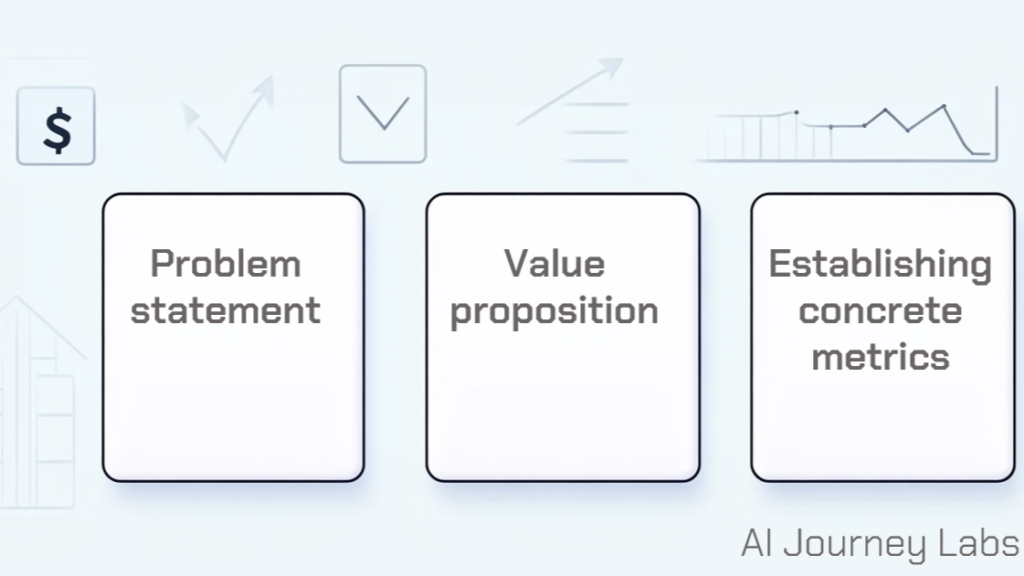In today’s rapidly evolving business landscape, the promise of artificial intelligence looms large. Yet many organizations find themselves overwhelmed by the hype, uncertain how to translate AI’s potential into tangible business value. Before diving into complex implementations or chasing the latest AI trends, there’s one fundamental question every business leader should ask: “What’s the ROI?” This simple yet powerful perspective can cut through the noise and clarify your AI journey.
Businesses across industries are struggling to navigate the AI revolution. With technologies advancing at breakneck speed and promises of transformational results, decision-makers face mounting pressure to implement AI solutions—often without a clear understanding of how these investments will pay off. The challenge is compounded by the scarcity of practical, business-focused guidance amid the technical complexity and constant innovation.
At AI Journey Labs, we’ve found that an ROI-first approach grounds AI initiatives in business reality. This starts with defining a specific problem statement, identifying exactly what business challenge you’re trying to solve. Rather than implementing AI for its own sake, successful organizations pinpoint opportunities where AI can address existing pain points or create new value.
Next comes articulating a clear value proposition. How exactly will solving this problem benefit your organization? Will it reduce costs, increase efficiency, improve customer experiences, or open new revenue streams? Being specific about expected outcomes helps set realistic expectations and provides direction for implementation.
The third critical step involves establishing concrete metrics to measure success. Without quantifiable goals, it’s impossible to determine whether your AI initiative is delivering the promised value or needs course correction.
Only after these business foundations are in place should you consider how AI technologies can solve your specific problem. This approach ensures AI serves business goals rather than the reverse.
Thinking objectively about ROI isn’t just about financial justification; it’s a powerful framework for understanding AI’s role in your business strategy and ensuring your investments deliver meaningful results in a complex, rapidly changing technological landscape.

